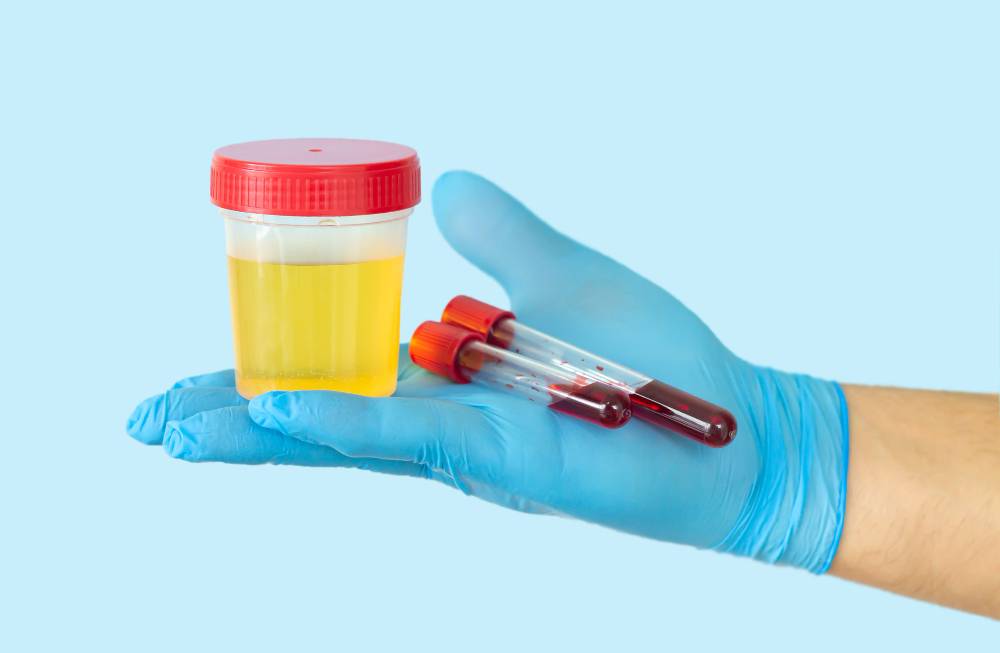
Medical tests are essential tools that can help uncover hidden health issues. But how do you decide between a blood test and a urine test? Each type of test offers specific insights into your health and can help your primary care physician make accurate diagnoses and provide effective treatment. At Southern Maryland Medical Group, we guide you through selecting the appropriate test based on your symptoms and health history so that you receive the quality care you need.
Both blood and urine tests are key to assessing different health aspects. Blood tests are vital for checking various substances in the body, offering immediate results on many health markers such as blood cell counts, electrolyte levels, and enzymes. Urine tests, on the other hand, are excellent for evaluating how the body excretes waste, and they’re often used to check kidney health, monitor diabetes, and assess hydration levels.
Monitoring kidney function is important for detecting conditions such as kidney disease or failure. Blood tests like the Blood Urea Nitrogen or BUN and Creatinine levels provide immediate information about how well your kidneys are filtering waste products. Urine tests often complement these blood tests; for example, the urine albumin test can detect early signs of kidney damage by measuring protein levels that shouldn’t normally be present.
Identifying infections depends greatly on the suspected infection site and the causative organism. Blood tests can detect systemic infections and inflammatory responses, while urine tests are often used to diagnose urinary tract infections by identifying bacteria or white blood cells in the urine. Each test type guides treatment decisions, such as the need for antibiotics.
For individuals managing diabetes, regular monitoring is critical. Blood tests measure glucose levels and provide a snapshot of blood sugar control over time through the Hemoglobin A1C test. Urine tests can also play a role, especially in identifying diabetes complications such as kidney damage, by detecting sugar and ketones in the urine.
Blood work is invaluable for assessing risk factors that are associated with cardiovascular diseases, like high cholesterol and glucose levels. Comprehensive blood panels, including lipid profiles, give a detailed view of your health so that primary care doctors in Clinton can help manage these levels through dietary changes or medication.
Blood tests can help assess the health of organs such as the liver, heart, and pancreas. Tests like liver function panels, cardiac enzyme tests, and pancreatic enzymes provide insights into each organ's state and functionality, guiding further treatment or investigative procedures.
Nutritional Deficiencies
Both blood and urine tests are important for diagnosing nutritional deficiencies. Blood tests can detect lower levels of vitamins, minerals, and other nutrients, indicating potential deficiencies that might be causing health issues. Conversely, urine tests can help in diagnosing problems related to mineral wastage or the body's ability to process certain nutrients.
Choosing between a blood test and a urine test depends on various factors, including the type of information needed and the condition being investigated. At Southern Maryland Medical Group, our team is here to provide professional diagnostic services to address your specific health concerns. Contact us today to discuss your needs or schedule an appointment with our qualified primary care doctors.
Southern Maryland Medical Group has 3 convenient locations to provide professional medical care services in the Southern Maryland area. Call or schedule an appointment with one of our locations to get medical care help.

5801 Allentown Road, Suite 400 Camp Spring, MD 20746
Phone: 301-868- 0150
Billing Inquiries: 301-552-1270
Fax: 301-868-0243

7500 Greenway Center, Dr #1200 Greenbelt, MD 20770
Phone: 301-486-7580
Billing Inquiries: 301-552-1270
Fax: 301-486-7581

6510 Kenilworth Ave, Ste 1400, Riverdale MD 20737
Phone: 301-618-0771
Billing Inquiries: 301-552-1270
Fax: 301-618-0772